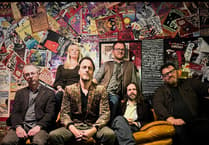This week I am on holiday from my day job and it feels really good. Not that I don’t enjoy my work – most of the time I absolutely do. But I am still grateful to have a few days off when I get to choose exactly what I do and when.
One of the things I don’t seem to have time to do in a ‘normal’ week, if there is such a thing, is to read. So whenever I am on holiday I always have a couple of books with me. Today I was reading a book called ‘Time and How to Spend it’ by James Wallman. I had picked it up because it sounded intriguing and seemed very relevant to my work in the field of mental health and wellbeing.
One of the stories in the book was of a young graduate from Yale University who wrote a farewell essay at the end of her studies. It came to be viewed more than a million times.
The young woman talked about her bittersweet feeling at finishing her time at university and commented on the fact that in the English language we don’t have a word for the ‘opposite of loneliness’. She explained that this was the feeling that she had had at Yale amongst her friends.
She had felt part of a group of people there and had experienced something which wasn’t quite love and wasn’t quite a community, but nevertheless the feeling that they were ‘all in this together’. She also talked about the fact that these young graduates still had their whole lives ahead of them: ‘we MUST not lose this sense of possibility because in the end it’s all we have’.
The young woman was called Marina Keegan and was 22 years old when she wrote those words. Marina was clearly a talented writer.
Even during her time at university she had written for the New York Times and also became a published playwright.
She would no doubt have gone on to achieve many more things too. However, the tragic irony of the story, is that five days after graduating, whilst en route to visit her father in Cape Cod, her boyfriend fell asleep at the wheel of the car she was travelling in. He survived, but Marina lost her life.
Of course in one way this is just one of many stories in which people are taken from this world too soon. It’s another example of the ‘life is short’ parable, reminding us to make the most of the time we have here.
More than that though, the thing that has really stuck with me from Marina’s story is her concept of ‘The Opposite of Loneliness’. In her essay, she said that even without a word for it, the opposite of loneliness was what she wanted in life.
I think most of us probably feel the same. Many of us might crave solitude at one time or another; far fewer aspire to a state of loneliness.
It occurred to me, that with the recent arrival of Ukrainian families in our region – without even knowing it, that is pretty much what we have all been seeking.
The opposite of loneliness. Neither we nor our Ukrainian guests can solve the horrors of the war. We can’t eradicate what has already happened or take away people’s fear or pain at what is still happening there now.
However what we can do is all give each other the message that none of us is alone. We are all in this together. We are willing to help in whatever small ways we can.
Ukrainians have done a huge amount to help and support each other, host families have gone to great lengths to support their guests and the wider community continues to show its generosity both in material terms and in terms of time, love and creativity. That has been a really wonderful thing to see.
None of us will ever look back on this period in history as anything other than an unnecessary and futile tragedy. However, I hope that if nothing else, the people of Devon who have been privileged enough to meet some of the people of Ukraine will also look back on this as a time when we genuinely tried to look out for each other.
I am quite sure that amidst this tragedy lifelong friendships are being born. And I hope that each person involved, whatever their story, gets to a state of being which feels like ‘the opposite of loneliness’.





Comments
This article has no comments yet. Be the first to leave a comment.